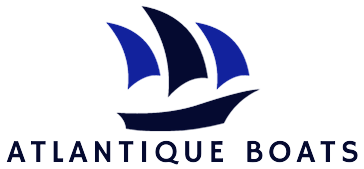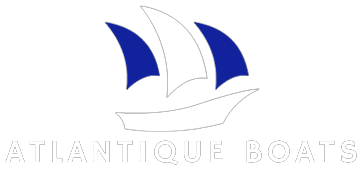If you’re looking to set sail on the open waters, one of the first things you’ll need is a boat license. But just how long does it take to obtain this essential credential? In this article, we will delve into the process of getting a boat license and explore the factors that can influence the time it takes to become a certified captain.
When it comes to acquiring a boat license, the duration can vary depending on several key factors. Firstly, the specific requirements and regulations can differ from one jurisdiction to another. Different countries and states may have their own set of rules and criteria for obtaining a boat license, so it’s important to familiarize yourself with the guidelines in your area. Additionally, the type of boat license you are seeking can impact the time frame. Some licenses may require more extensive training and experience, while others may have more streamlined processes. So, whether you’re dreaming of navigating the tranquil lakes or conquering the vast ocean, read on to discover the steps involved and gain a better understanding of the time it takes to become a licensed boater.
How long does it take to get a boat license?
To obtain a boat license, the duration may vary depending on your location and the type of license you are applying for. Generally, it can take anywhere from a few days to several weeks. The process typically involves completing a boating safety course, passing a written exam, and submitting the necessary paperwork. Contact your local boating authority or visit their website for specific requirements and processing times.
How Long Does It Take to Get a Boat License?
Obtaining a boat license is an essential step for anyone who wants to operate a boat legally and safely. The time it takes to get a boat license can vary depending on several factors, including the type of license you need and your previous boating experience. In this article, we will guide you through the steps to get your boat license and provide an estimated timeframe for each stage of the process.
Step 1: Study the Boating Regulations
The first step in getting a boat license is familiarizing yourself with the boating regulations in your area. Each jurisdiction may have its own set of rules and requirements, so it’s crucial to study the relevant regulations. This can be done by accessing the official website of your local boating authority or by obtaining a boating handbook.
Take your time to read and understand the rules, regulations, and safety guidelines that apply to boating in your region. It is essential to have a solid grasp of these regulations as you will be tested on them during the licensing process. Depending on your prior knowledge and dedication, this step can take anywhere from a few hours to a couple of days.
Step 2: Enroll in a Boating Safety Course
Most jurisdictions require boaters to complete a boating safety course before obtaining a license. These courses cover essential topics such as navigation rules, emergency procedures, and safe boating practices. The duration of the course can vary, ranging from a few hours to a couple of days, depending on the course provider and the level of detail covered.
Enrolling in a boating safety course can be done both online and in-person, depending on the options available in your area. Online courses offer flexibility, allowing you to study at your own pace, while in-person courses often provide hands-on training and practical demonstrations. It is crucial to choose a course that is approved by your local boating authority to ensure that it meets the licensing requirements.
Step 3: Take the Boating License Exam
Once you have completed the boating safety course, you will need to pass a boating license exam. The exam typically consists of multiple-choice questions that assess your knowledge of boating regulations, safety practices, and navigation rules. The length of the exam can vary, but it usually takes around one to two hours to complete.
Make sure to study the materials provided during the boating safety course and review any additional resources recommended by the course provider. Taking practice exams can also be helpful in familiarizing yourself with the format and content of the actual exam. Once you feel prepared, schedule a date and time to take the exam at a designated testing center.
Step 4: Practical On-Water Training (If Required)
In some jurisdictions, a practical on-water training component may be required to obtain a boat license. This training allows you to apply the knowledge gained from the safety course in real-life boating situations. The duration of the practical training can vary depending on the specific requirements set by your local boating authority.
If practical training is required, you will typically be assessed on your ability to operate a boat safely, perform basic maneuvering techniques, and respond to emergency situations. The training may be conducted by an approved instructor or examiner who will evaluate your skills and provide feedback. It is essential to practice and gain confidence in your boating abilities before undergoing the practical training.
Step 5: Receive Your Boat License
After successfully completing all the necessary steps, you will receive your boat license. The time it takes to receive the license can vary depending on the processing time of your local boating authority. In some cases, you may receive a temporary license immediately after passing the exam, allowing you to operate a boat legally while waiting for the official license to arrive.
Once you have your boat license, make sure to keep it with you whenever you are operating a boat. Familiarize yourself with any additional requirements or restrictions that may apply to your license, such as age restrictions or limitations on the size or type of boat you can operate.
Conclusion
In conclusion, the time it takes to get a boat license can vary depending on factors such as the region you are in, the type of license you need, and your previous boating experience. By studying the boating regulations, enrolling in a boating safety course, passing the license exam, and completing any practical on-water training if required, you can obtain your boat license and enjoy boating safely and legally.
Frequently Asked Questions
Here are some commonly asked questions about how long it takes to get a boat license:
Question 1: How long does it take to get a boat license?
Obtaining a boat license typically involves completing a boating safety course and passing a written examination. The duration of the process can vary depending on several factors, including the individual’s prior knowledge and experience with boating regulations, as well as the availability of boating safety courses in their area.
On average, it may take anywhere from a few days to a few weeks to complete the necessary requirements for a boat license. This timeframe allows individuals to study the boating regulations, attend the safety course, and adequately prepare for the written examination.
Question 2: What does the boating safety course entail?
The boating safety course covers essential topics such as navigation rules, boating laws, emergency procedures, and equipment requirements. It aims to educate boaters on safe boating practices and promote responsible behavior on the water.
The course can be taken online or in-person, and the duration varies depending on the provider. It typically consists of instructional materials, videos, quizzes, and a final examination. Completion of the course is mandatory in many places before individuals can obtain a boat license.
Question 3: Can I get a boat license if I have prior boating experience?
Prior boating experience can be beneficial when obtaining a boat license, as it may provide a foundation of knowledge and familiarity with boating regulations. However, even individuals with prior experience are typically required to complete the boating safety course and pass the written examination.
Having prior experience may aid in understanding the course material and allow for quicker completion of the necessary requirements. It is important to note that the specific regulations and requirements for obtaining a boat license may vary by jurisdiction.
Question 4: Are there any age restrictions for obtaining a boat license?
Many jurisdictions have age restrictions for obtaining a boat license. These restrictions are in place to ensure that individuals operating a boat have the necessary knowledge and maturity to do so safely.
The minimum age requirement can vary, but it is common for young boaters to be required to take a boating safety course and obtain a youth boating license, which may have additional restrictions and supervision requirements. Adult boaters usually have separate requirements and may need to obtain a regular boat license.
Question 5: How can I find boating safety courses in my area?
To find boating safety courses in your area, you can start by checking with your local boating or marine authorities. They often provide information on approved courses and providers.
You can also search online for boating safety courses offered by reputable organizations or look for boating education programs at local boating clubs or marinas. Additionally, some online platforms offer boating safety courses that can be completed at your own pace.
In conclusion, obtaining a boat license is a crucial step for any aspiring boater, as it ensures safety on the water and adherence to regulations. While the exact time it takes to get a boat license may vary depending on various factors, such as the applicant’s prior knowledge and experience, it is important to approach the process with dedication and a commitment to learning. By enrolling in a comprehensive boating education course, applicants can acquire the necessary knowledge and skills to navigate the waters responsibly.
Furthermore, it is worth noting that obtaining a boat license is not just a one-time endeavor, but rather an ongoing commitment to staying informed about boating laws and regulations. As technology and regulations continue to evolve, it is essential for boaters to stay up-to-date with any changes that may affect their license status. Whether someone is a seasoned boater seeking a license renewal or a beginner looking to embark on their first boating adventure, investing the time and effort into obtaining and maintaining a boat license is a responsible decision that will enhance their boating experience and promote safety for themselves and others on the water.

















